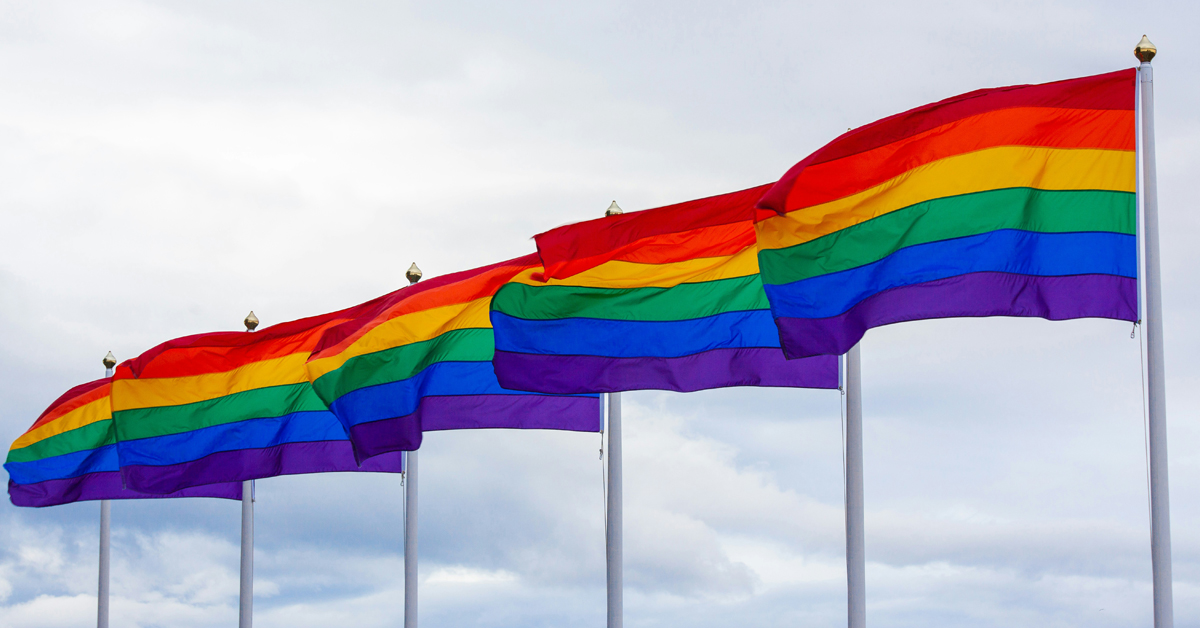By Don Fortson
TE, Central Carolinas Presbytery
In the last two years, the EPC has faced the issue of a same-sex attracted ordained minister who left the PCA (fleeing potential discipline) and is now applying for membership in the EPC’s Mid-America Presbytery. This minister openly asserts a homosexual orientation that God has “not promised to change”1 and declares that he is celibate.
The congregation this pastor serves, which is also seeking admission to the EPC, has supported the controversial “Revoice” conferences. The fact that Mid-America Presbytery did not give an unmistakable “no” to these inquiries has been shocking to many. What has brought about this new openness to consider a question that was inconceivable just a few decades ago? A number of factors seem to have influenced a new way of thinking about homosexuality.
Differing Perspectives
The cultural pressure to accept gay orientation as normal is immense. Across America, the gay Christian movement is exerting tremendous pressure upon evangelical churches to compromise. Progressives are convinced this is a nuanced discussion — that we must have compassion for same-sex attracted believers who may otherwise qualify for church leadership. Others appear to differ with the historic Christian perspective that pastors are to be sanctified examples to the flock who are above reproach (1 Timothy 3:2, 4:12; Titus 1:6,7). Instead, they argue that pastors are to be seen as fellow strugglers, openly sharing their sinful desires/practices; ergo, an openly gay pastor would be more effective in outreach to the gay community.
One also hears a new perspective that all “sins are equal in the sight of God.” So why pick on homosexuals? Another influence is the antinomian tendency within evangelicalism that downplays the requirements of God’s moral law in the lives of believers, emphasizing God’s forgiving grace while minimalizing God’s transforming grace. Allowing celibate homosexuals in leadership positions is therefore viewed as virtuous in this new perspective on homosexuality.
These new perspectives have stirred up significant turmoil in the EPC. The new view considers resistance to ordaining celibate homosexuals as fearful overreaction and judgmentalism. On the other hand, traditionalists believe that recognizing same-sex orientation/identity as legitimate for a believer is in itself unbiblical. Traditionalists would also affirm the higher standard for holiness required of the clergy, contending that ordaining a celibate homosexual to church office is both disobedient to Scripture and ecclesiastical recklessness. In addition, traditionalists would point to recent Presbyterian history for evidence of how compromising with the gay Christian movement led to the blessing of homosexual heresy in the mainline church.
Presbyterian History
The homosexual issue was beginning to get a lot of press in the United Presbyterian Church in the United States of America (UPCUSA) in the years immediately preceding the 1981 founding of the EPC. In September 1976, the General Assembly of the UPCUSA appointed 19 individuals to serve on a task force to study homosexuality. This committee was the GA’s response to two overtures that requested “guidance” and asked for a special committee to address homosexuality. The committee concluded its work in January 1978. In summing up the work of the committee, the Background Paper observed:
“In discussing the ordination of self-affirming, practicing homosexual persons, the task force has not been able to reach consensus. We have experienced sharp conflict.”
The Majority report, endorsed by 14 committee members, favored allowing presbyteries the freedom to make their own decisions about ordaining homosexuals. The Minority report, written by five committee members, advised not ordaining a “self-affirming, practicing homosexual person.”
At its May 1978 meeting, the UPCUSA GA adopted the Minority report which welcomed gays and lesbians into church membership but stated that “self-affirming, practicing homosexuals” were not eligible for ordination to church office. Evangelicals won the vote, but some critical mistakes were made. First, the 1976 study committee’s use of “scientific” studies that recognized same-sex attraction as a sexual “orientation.” The study committee’s Minority report, written by conservatives, naively affirmed homosexual identity, justifying this as a way to reach the homosexual community.2
Undoubtedly, the evangelicals writing the Minority report (which advised against ordination for practicing homosexuals) were trying to find some place of unity with the liberal majority. So, they agreed with ordaining a person who identifies as homosexual, but celibate (the second mistake). As the study committee’s Background Paper noted, “The task force quickly reached consensus that no biblical, theological, or constitutional bar exists to ordination of those homosexual persons who have accepted and committed themselves to a celibate lifestyle.” Evangelicals apparently thought that compromise on homosexual identity and ordaining celibate homosexuals could be a way forward. In hindsight, this was the first misstep toward normalizing homosexuality in the mainline church. It set the trajectory for the mainline celebration of gay ordination and gay marriage. [The EPC would write its own Position Paper on Homosexuality in 1986].
Unity in Essentials
When I wrote the history of the EPC, I decided on the title: “Liberty in Non-Essentials.” This title captures the unique ethos of the EPC within the broader family of conservative Presbyterian denominations in America. Upholding the “Liberty in Non-Essentials” principle has been a bedrock principle of the EPC on a number of issues.
The first official EPC logo had inscribed upon it the famous maxim: “In Essentials Unity; In non-Essentials Liberty; In All Things Charity.” While this winsome motto has been easy to affirm in principle, it is quite another thing to flesh it out in the midst of theological differences. It has not been easy, but the EPC in its 43 years has been able to maintain its embrace of “liberty in non-essentials” in three major areas: women’s ordination, understanding the gifts of the Spirit, and the EPC commitment to be both confessional and evangelical.
In the last couple of years, the EPC has been pushed again on this principle with the question of receiving a gay minister into the EPC. Paradoxically, after four decades, the EPC is now facing the same question the old UPCUSA faced in 1976 — should we allow ordained ministers who self-identify as gay but practice celibacy?
A great strength of the EPC has been the charitable spirit we share among one another in our practice of “liberty in non-essentials.” This has made the EPC a rather peaceable household for most of our 43-year history. This is what has attracted churches from both the left and right of us to seek admission into the EPC over the years.
Of course, one’s greatest strength has the potential to become one’s greatest weakness. Vigilance is imperative. Our admirable tendency to maintain unity in the bond of peace has meant for some the unwillingness to fight over anything. This is a potential weakness for us. We can’t compromise on everything. There are boundaries to non-essentials. Some views must be excluded when they don’t square with Scripture and the teaching of our doctrinal standards, the Westminster Confession of Faith and Catechisms.
While it may be popular among evangelicals to assert “all sins are equal in God’s sight,” this is not biblical. Some may even suggest that homosexual sin is no worse than heterosexual sin. This is likewise not biblical.
The consequences of some sins are more severe than others, and some sins incur a greater judgment among men and in the sight of God. Sexual sins are a more heinous category of sin according to Scripture (1 Corinthians 6:18-20). Homosexuality is singled out as humankind’s ultimate rebellion against the creator’s design in nature (Romans 1:24-28). The Westminster Larger Catechism, following Scripture, declared that some sins are more heinous than others, and homosexuality is in a unique category as sin against the “light of nature” (L.C. Q.151 references Romans 1:26,27).3 The heinous nature of unnatural desires would indicate that only heterosexuals would potentially qualify for church office.
Conclusion
When it comes to essentials of the faith — core Christian doctrine and practice — we must have unity. There are a host of things we can agree to put into the non-essential category, but there are “essentials” that demand unity. The sexual ethic of the Bible is an essential of the faith. Homosexuality has rightly divided all the mainline churches, and now the issue is beginning to bring division to evangelical churches. The EPC must be willing to fight about this issue, with requisite winners and losers. For the vast majority of the EPC, the consistent biblical understanding of homosexuality is clearly an essential of the faith in which there can be no compromise.
Of course, some of our Christian brothers and sisters have ongoing struggles with homosexual desire, just as heterosexual believers may struggle with ungodly sexual desires. All believers battle sinful desires — that is not the question. The question concerns an individual who continually struggles with homosexual desires and views himself as gay. Should a gay person be in a Presbyterian pulpit? According to Scripture and our confessional standards, the EPC must affirm that a celibate same-sex attracted believer should not hold church office.
____________________
1 See Greg Johnson, Still Time to Care: What We Can Learn from the Church’s Failed Attempt to Cure Homosexuality (Grand Rapids: Zondervan, 2021), 144.
2 The Church and Homosexuality, which contained “The Background Paper of the Task Force to Study Homosexuality” and the “Policy Statement and Recommendations” is available online at www.pcusa.org/site_media/media/uploads/_resolutions/church-and-homosexuality.pdf
3 See L.C. Q. 151.3 in the original version of the Westminster Larger Catechism adopted by the General Assembly of the Church of Scotland in 1648.


Leave a Comment